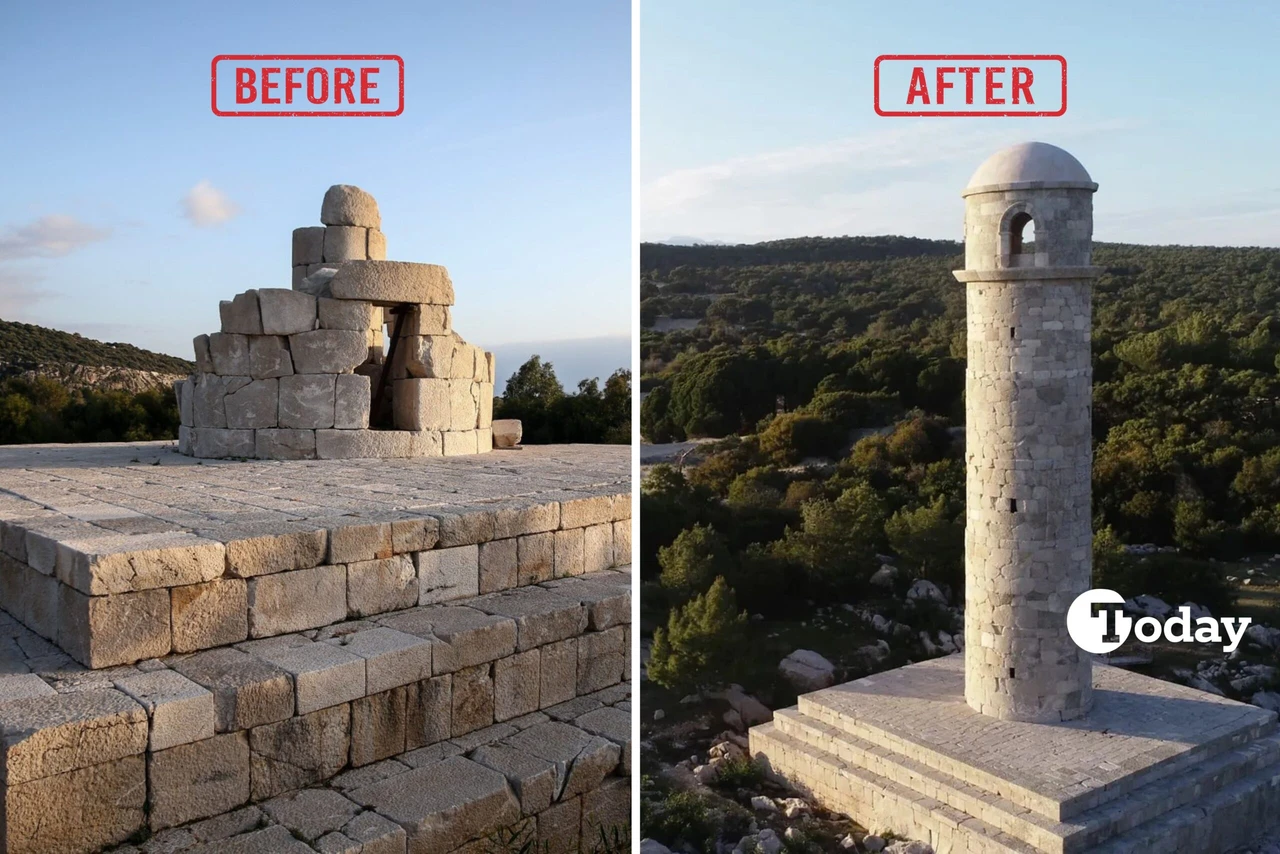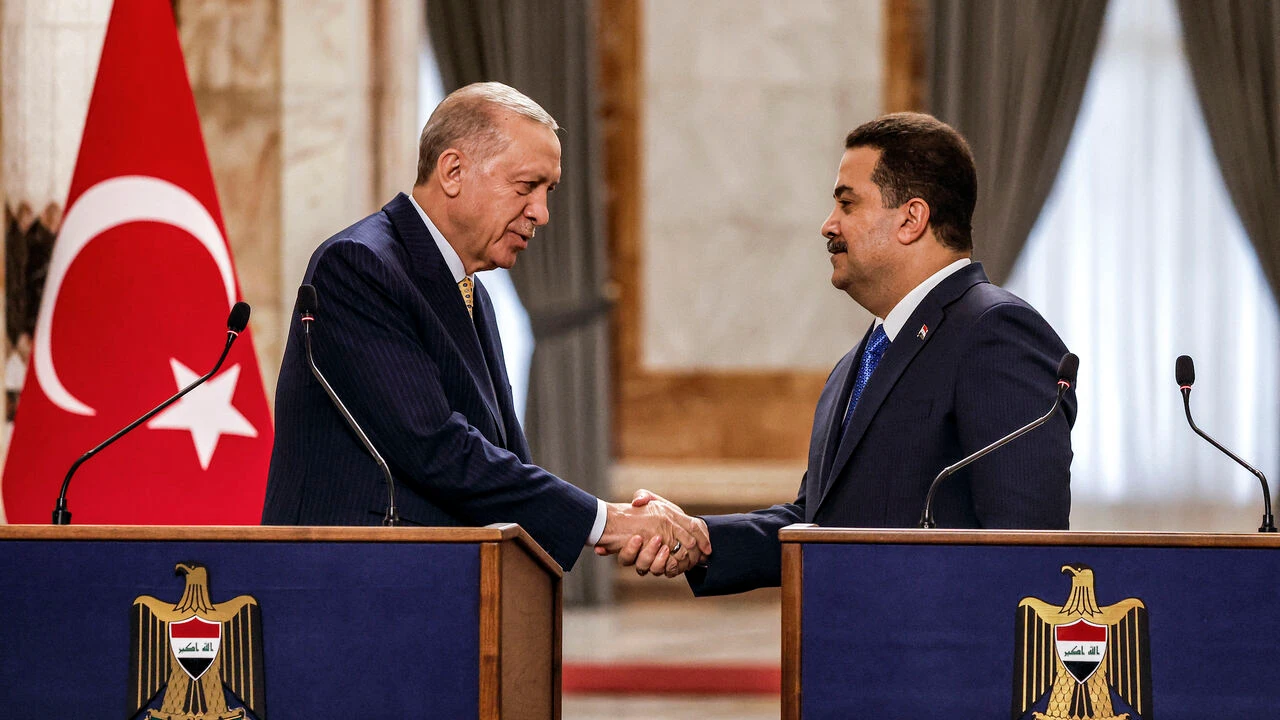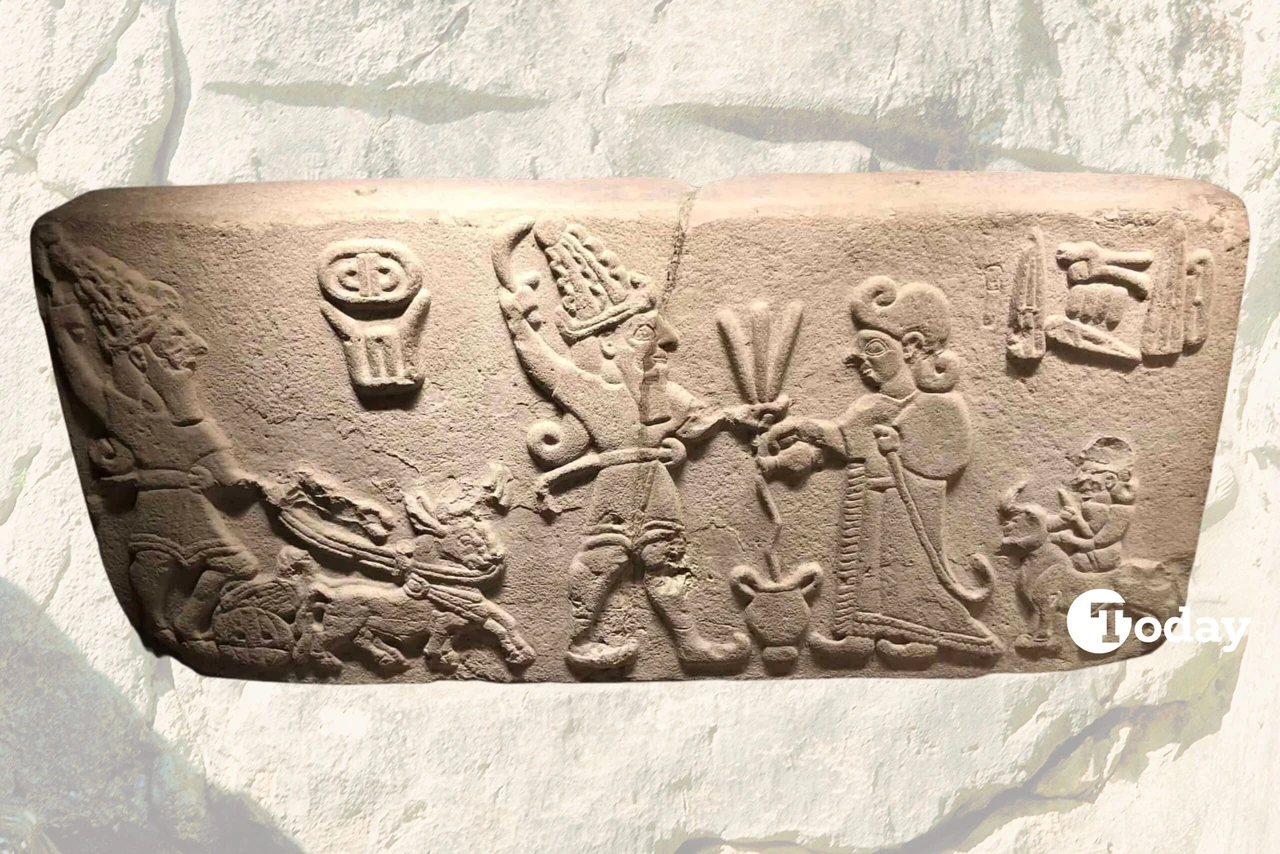Israel intensifies airstrikes across Lebanon amid UN outrage
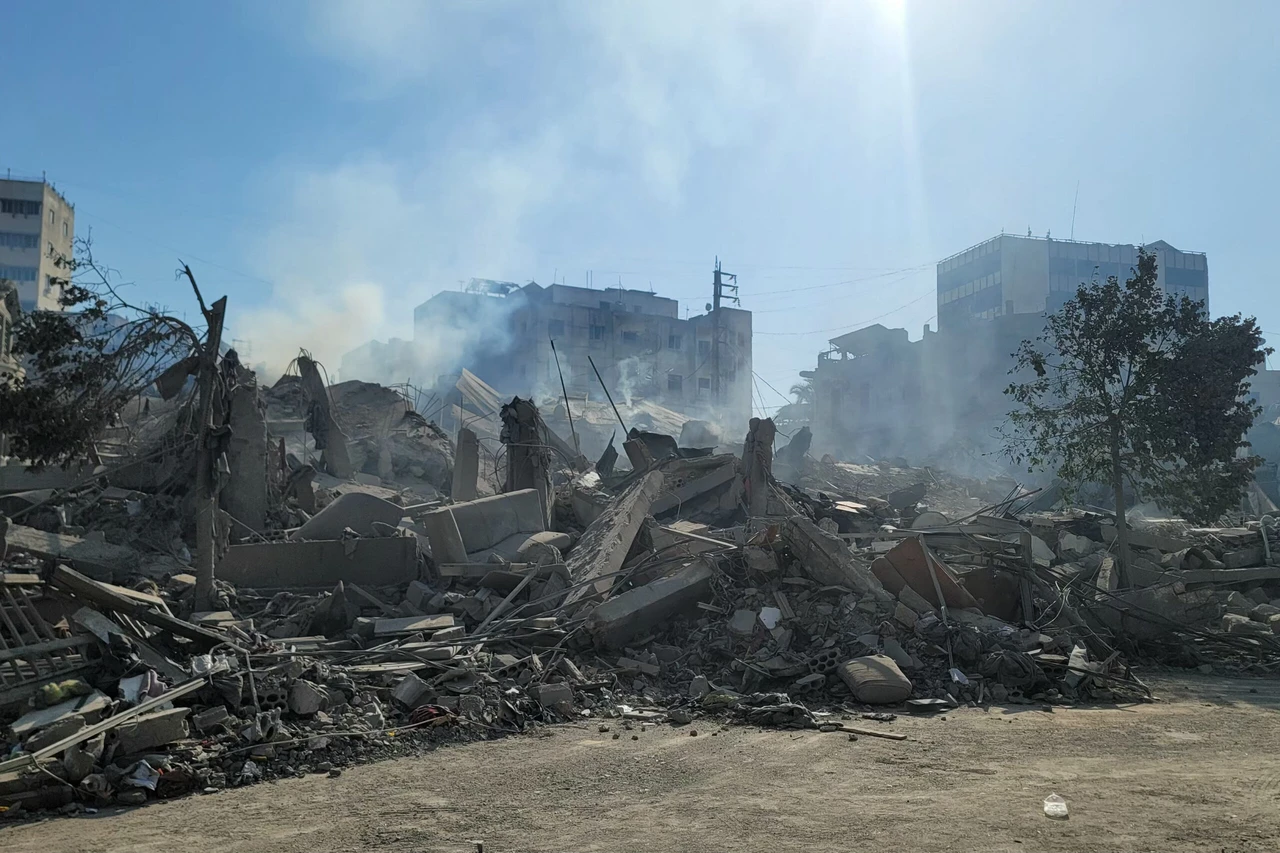 Photo shows damage a day after an Israeli airstrike targeted the marketplace of the southern Lebanese city of Nabatiyeh, October 13, 2024. (AFP Photo)
Photo shows damage a day after an Israeli airstrike targeted the marketplace of the southern Lebanese city of Nabatiyeh, October 13, 2024. (AFP Photo)
The clash between Hezbollah and Israel continued in southern Lebanon, with its air force expanding strikes across the country. Hezbollah reported “point-blank” fighting, and Israel announced the capture of a Hezbollah fighter amid intensifying clashes.
Tensions escalated as the U.N. peacekeeping mission, UNIFIL, reported Israeli forces of “forcibly” entering a Blue Helmet position on Sunday.
Israeli Prime Minister Benjamin Netanyahu had earlier urged the withdrawal of U.N. peacekeepers from southern Lebanon, claiming their presence served as “human shields” for Hezbollah militants.
Israel targets 100-year-old mosque
Israel’s recent airstrikes targeted areas beyond Hezbollah’s strongholds, with Lebanon’s health ministry reporting deadly strikes in a Shiite village within a mostly Christian mountain area and another in the north.
Among the targets was a 100-year-old mosque in Kfar Tibnit, near the Israeli border, according to Lebanon’s National News Agency.
The Israeli military reported continued ground and air operations against Hezbollah, targeting “rocket launchers, anti-tank missile posts, and weapons storage facilities,” and claimed to have “eliminated dozens” of fighters.
Meanwhile, Hezbollah confirmed multiple clashes with Israeli troops attempting to “infiltrate” border villages and said its forces had engaged Israeli soldiers “with machine guns at point-blank range” in Blida village.
The group also claimed responsibility for a rocket attack on a base near Haifa, one of Israel’s major northern cities. Israeli officials reported that by Sunday afternoon, 115 Hezbollah-fired projectiles had landed in Israeli territory.
The Israeli military also announced that a Hezbollah fighter was captured emerging from a tunnel in southern Lebanon — the first such capture since Israel’s ground offensive began.
UN demands ‘explanation’ over Israeli actions
U.N. peacekeepers expressed outrage on Sunday after Israeli tanks breached a UNIFIL position in Ramia, southern Lebanon. “At around 4:30 a.m., while peacekeepers were in shelters, two Israeli Defense Forces (IDF) Merkava tanks destroyed the position’s main gate and forcibly entered the post,” UNIFIL said. The tanks left 45 minutes later, following UNIFIL’s protests.
This follows an earlier incident on Saturday, when Israeli soldiers blocked a critical UNIFIL logistical movement near Mais al-Jabal. UNIFIL has demanded an explanation from the IDF regarding these violations.
Israeli Prime Minister Netanyahu had called on U.N. peacekeepers to withdraw from southern Lebanon, claiming their presence endangered them by providing cover for Hezbollah militants.
In response, Lebanese Prime Minister Najib Mikati condemned Netanyahu’s remarks, describing them as a “new chapter” in Israel’s disregard for international norms.
UNIFIL, which consists of about 10,000 troops deployed under U.N. Security Council Resolution 1701, remains in southern Lebanon. French President Emmanuel Macron condemned Israeli actions, calling it “absolutely unacceptable” that U.N. forces are being deliberately targeted.
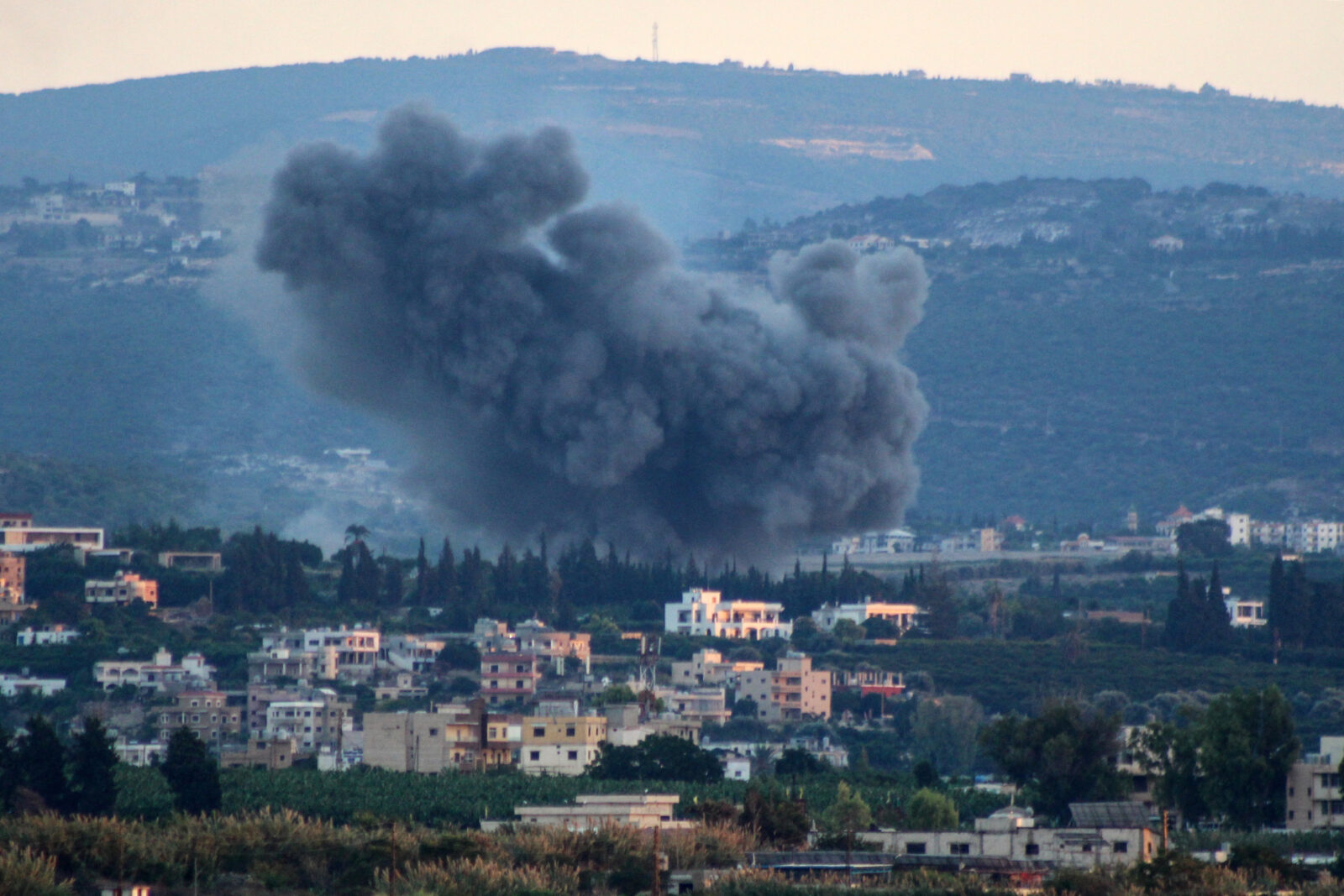
Lebanon calls for immediate cease-fire
As the conflict rages, Lebanese officials continue to push for a ceasefire. Prime Minister Mikati announced plans to ask the U.N. Security Council for a new resolution calling for a “full and immediate cease-fire” in both Lebanon and Gaza.
The war between Israel and Hamas, which began on October 7, 2023, has resulted in heavy casualties on both sides. The death toll in Gaza has reached over 42,000, with the majority being civilians, according to the health ministry in Gaza. In Lebanon, more than 1,200 people have been killed and a million others displaced since Israel expanded its military focus to Hezbollah-controlled regions.
Meanwhile, international efforts to broker peace have faltered, and the humanitarian crisis continues to worsen. Aid arrived in Lebanon from Qatar and Saudi Arabia on Sunday, but the scale of need remains immense. The International Organization for Migration has described Lebanon’s situation as dire, especially as the country grapples with an economic crisis.
Iran has no ‘red lines’
Iran’s top diplomat Abbas Araghchi, visiting Baghdad ahead of expected Israeli retaliation for Iran’s missile attack, warned that Tehran had “no red lines” in defending its people but emphasized that Iran seeks a “just peace” in both Lebanon and Gaza.
In Gaza, the situation remains dire as Israeli forces continue operations around Jabalia, and thousands of Palestinians are trapped with no safe place to go.
